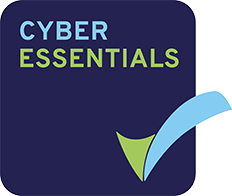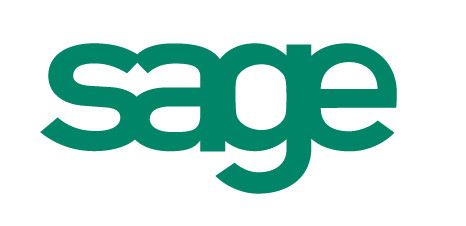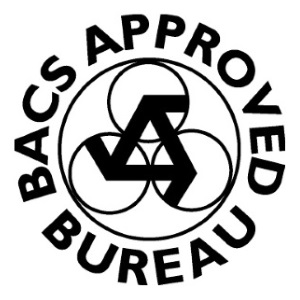Further help for the self-employed
On 26 March, the Chancellor announced a significant package of measures that will help an estimated 3.8 million self-employed people.
Starting in June, the Government will pay a one-off grant (comprising 80% of the average profits over the last 3 years of self assessment earnings) into the bank accounts of eligible individuals or partners. Read on to see if you are eligible.
The scheme will apply to an individual or member of a partnership who has submitted a Self Assessment Tax Return for the tax year 2018/19. In normal circumstances, this tax return will have been submitted by 31 January 2020. The individual must trade in the current tax year 2019/20 and intend to continue to trade in the next tax year 2020/21. Crucially, the individual must also have lost trading/partnership profits due to the Covid-19 crisis.
You will be eligible for the grant if your trading profits are less than £50,000, and more than half of your income comes from those profits. If you have investment income that is greater than one half of your trading profits, you will not be eligible for the grant.
Your trading profits are calculated from the tax year 2018/19, or your average profits covering the three years 2016/17, 2017/18 and 2018/19. To calculate the average annual amount, HMRC will add together the total trading profit for the three years (where applicable) and then divide that total by three. If either of these figures is less than £50,000 and more than half of your income comes from these profits, you will be eligible for the grant.
If you have not yet submitted a tax return for 2018/19, you will still be able to have your eligibility assessed if you submit it by 23rd April 2020.
When each individual’s circumstances are reviewed, the Government will pay a grant of 80% of the profits calculated, subject to a maximum of £2,500 per month for 3 months, directly into the bank account of each eligible self-employed individual or partner.
It will be paid in one instalment and the first payments are not expected before June 2020 in order to put in place the mechanism by which payments are calculated and paid.
It should be noted that the amount of the grant is taxable.
Next Steps
If you have not yet submitted a tax return for 2018/19, you will still be able to have your eligibility assessed if you submit it by 23rd April 2020.
Starting in June, HMRC will be contacting all self employed individuals who they deem to be eligible, so you do not need to contact HMRC. Due to the complexity of the calculations, the process will take weeks and months, so you may not be contacted until after June.
Once you have been invited to participate, you will make your application online and complete the necessary documentation for the grant. HMRC will assess your claim and if you are eligible for the grant, you will be told how much you will get and the payment details.
Other considerations
Here are some of the other measures previously announced, which may help the self-employed:
Sick pay and Universal Credit
Although freelancers and the self-employed do not normally have access to sick pay, the Government has promised to pay Employment and Support Allowance (ESA) from day one if you have to self isolate or are sick. ESA is typically £73.10 or £57.90 for people under the age of 25.
Changes to Universal Credit mean that the self-employed receive the same amount as someone on statutory sick pay, or £94.25 a week. Universal Credit is calculated based on your earnings, whether you’ve got children, and other factors. You can find out more on how much you can claim here.
Mortgage holidays
You may be able to take a three month mortgage holiday, though be aware that these are not available for buy-to-let investors. Take a look at our list of mortgage providers and their coronavirus measures here.
VAT
Any VAT payment that falls due between 20 March 2020 and 30 June 2020 can be deferred. This is an automatic deferral and does need to be applied for. The deferral period will end at the end of the current tax year – i.e. 5 April 2021.
All VAT registered businesses should still file their VAT Returns on time in order to avoid late filing surcharges – it is only the payment between the above dates that is deferred. If businesses are unable to file VAT Returns on time, during the current crisis, it is anticipated that HMRC will look favourable upon any appeals made against late filing surcharges.
Self Assessment
If you are registered for Self Assessment, the payment date for the second payment on account normally due on 31 July 2020 has been deferred until 31 January 2021. Whilst this is a welcome announcement, everyone should be mindful that 31 January 2021 is also the date on which the balancing payment for 2019/20 will be due and the first payment on account for 2020/21. The cashflow implications for that particular date could therefore be significant.
Time to Pay
If you are already experiencing cashflow problems due to the current crisis, HMRC have indicated that they will look favourably on any application for a “Time to Pay” arrangement. This will apply to any overdue PAYE, Self Assessment or Corporation Tax. HMRC will normally expect such an arrangement to cover all outstanding taxes and for you to pay by monthly instalments, usually by direct debit. Interest will still be added to such payments. HMRC have installed a dedicated helpline on 0800 015 9559 for you negotiate a “Time to Pay” arrangement. This line is open from 8am to 8pm Monday to Friday and 8am to 4pm on Saturday.
If you find yourself already being contacted by HMRC’s debt recovery teams, you may also attract a more favourable reaction than usual, due to the current crisis.
Government Loans
Take a look at our previous blog post on recent Government measures which includes details of the Business Interruption Loan Scheme, providing loans of up to £5 million with the first 12 months interest free. As we said in our article, speak to your accountant about your capacity for debt.
Payment on Account, the Construction Industry Scheme and the Budget Payment Plan
If you use any of the schemes above, and your income drops (or your business closes in respect of the CIS), what you have paid so far may cover the rest of your tax bill. If it means you have overpaid, you may be able to request a repayment now to ease cash flow. If you are making tax and National Insurance contributions through the Budget Payment Plan, then you can ask HMRC to stop or refund payments.
Cashflow
As we said in our article about help for businesses you could contact your credit suppliers to ask about repayment holidays, credit and overdrafts. You might be able to aid cashflow by relaxing repayments. See if you can negotiate improved terms for payments and pricing with your suppliers.
Finally, if you do not receive payment for work you have done, keep a record. You will be able to use it as evidence in any appeals to HMRC.
As always, we’re here to help you in these uncertain times. If you need advice about any of the above, speak to us about the ways we can help.











